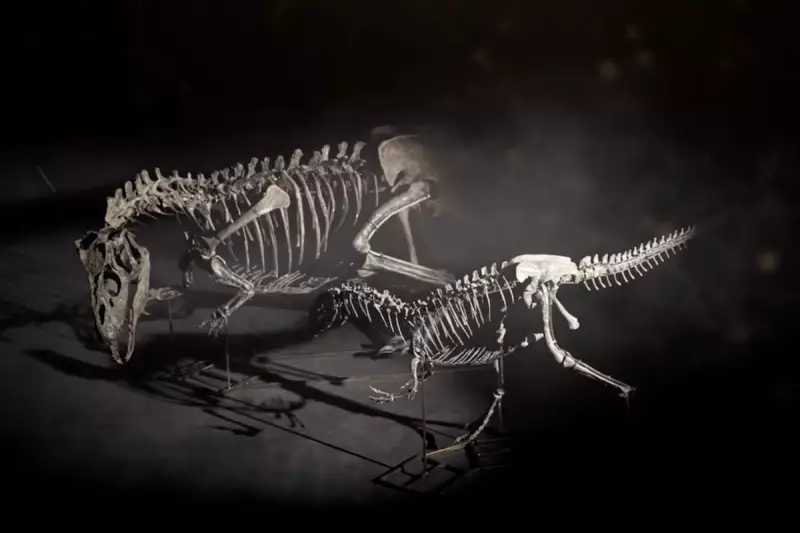
In a stunning development that reads like a plot from an adventure film, British authorities have intercepted an extraordinary collection of rare dinosaur fossils destined for the black market. The seized specimens include a near-complete Tarbosaurus skeleton and multiple Oviraptor fossils, all dating back approximately 72 million years.
The London Warehouse Discovery
Acting on intelligence, officers from the Metropolitan Police and the Border Force conducted a raid on a commercial storage facility in London. What they uncovered surpassed all expectations: meticulously packaged prehistoric treasures that had been illegally transported across international borders.
The collection's centrepiece is a remarkably preserved Tarbosaurus bataar skeleton, a fearsome relative of the legendary Tyrannosaurus rex. Measuring several metres in length, this carnivorous predator represents one of the most significant fossil finds to surface in recent years.
International Smuggling Network Exposed
Investigators have linked the fossils to Su Binghai, a name already familiar to international law enforcement agencies specialising in cultural heritage crimes. Mr Su previously served a prison sentence in the United States for similar offences, highlighting the persistent global problem of fossil trafficking.
"This isn't merely about illegal trade," explained a senior investigator involved in the case. "Each of these specimens represents a priceless piece of natural history that should belong to humanity, not private collectors willing to ignore legal and ethical boundaries."
Scientific Significance Lost to Commerce
Paleontologists consulted about the seizure expressed both relief and frustration. When fossils are sold privately rather than studied scientifically, crucial information about prehistoric life is permanently lost to researchers.
The accompanying Oviraptor specimens are particularly intriguing to scientists. These beaked, feathered dinosaurs have often been misunderstood—their name literally means "egg thief"—though modern research suggests they were likely caring parents rather than nest raiders.
Ongoing Investigation and Global Implications
Authorities continue to trace the smuggling route that brought these Mongolian fossils to London. The case highlights the sophisticated networks that operate across continents, exploiting legal loopholes and targeting wealthy collectors who value exclusivity over scientific preservation.
The seized fossils are currently being held as evidence while preparations are made for their eventual repatriation to Mongolia, where they rightfully belong as part of the country's natural heritage.
This seizure represents a major victory in the ongoing battle against the illegal fossil trade, but experts warn that countless other specimens continue to disappear into private collections, their scientific stories forever untold.





